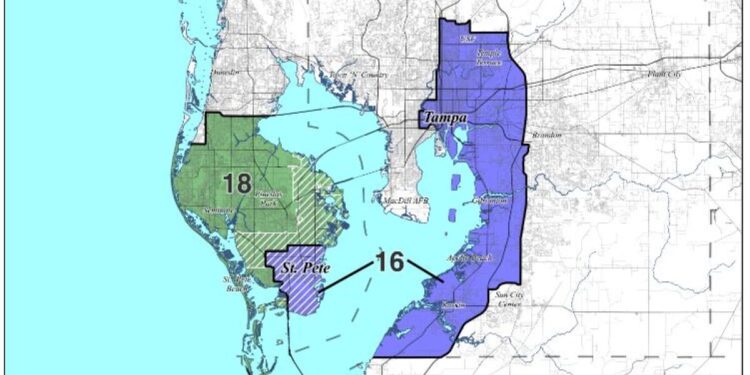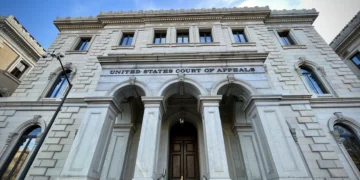April 12, 2024 Story by: Publisher
Residents in the Tampa Bay area are contesting the fairness of two Senate districts, asserting that they unfairly weaken the voting power of Black constituents, more than two years following the redrawing of the state’s legislative maps.
A legal challenge filed by five individuals from Tampa and St. Petersburg claims that Senate District 16 and Senate District 18 have been gerrymandered to the detriment of Black voters and violate their constitutional rights to equal protection. District 16, represented by Sen. Daryl Rouson, extends across Tampa Bay to encompass parts of Pinellas and Hillsborough counties, while District 18, represented by Republican Nick DiCeglie, covers a portion of Pinellas County.
The lawsuit, spanning 31 pages, argues that the state’s delineation of these districts failed to uphold traditional redistricting principles and instead resorted to racial gerrymandering, thereby diminishing Black voters’ influence. Despite purported efforts to safeguard Black voters’ representation in District 16, the lawsuit contends that the state’s approach unjustly concentrates Black voters into certain areas while diluting their impact elsewhere.
Although the redistricting plan secured final approval from lawmakers in February 2022 and was utilized in the subsequent elections, the legal challenge underscores persistent concerns regarding the equitable representation of minority communities. Responding to the lawsuit, Senate President Pro Tempore Dennis Baxley emphasized the unanimous support the districts received during the approval process and pledged to defend them vigorously.
This legal action follows a recent federal court decision rejecting a challenge to a congressional redistricting plan advanced by Governor Ron DeSantis in 2022. While the congressional map has generated significant controversy, the Senate map has largely evaded scrutiny until now. Prior to its adoption, lawmakers aimed to learn from past redistricting pitfalls to ensure compliance with constitutional and statutory requirements.
Central to the debate surrounding redistricting is the implementation of the 2010 Fair Districts amendments, which mandate that new maps uphold minority voters’ ability to elect representatives of their choice. The lawsuit alleges that while the state ostensibly sought to adhere to these standards, its approach fell short of ensuring equitable representation for Black voters.
Represented by legal teams from the ACLU of Florida, the Civil Rights & Racial Justice Clinic at New York University School of Law, and Butler Weihmuller Katz Craig LLP, the plaintiffs seek a declaration of the districts’ unconstitutionality, an injunction against future elections in those districts, and a remedy to establish constitutional districts where residents can exercise their voting rights effectively.
Source: WTSP

















